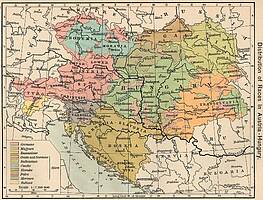Ordering Diversity. Concepts of Federalism in the Austro-Hungarian Empire and its Successor States
How does federalism shape social diversity? And how does social diversity shape federalist concepts of order? These are the central questions addressed by a social history of federalism, a history of federalism ‘from below’.
The Emmy Noether Junior Research Group ‘Ordering Diversity. Concepts of Federalism in the Austro-Hungarian Empire and its Successor States’ is funded by the German Research Foundation (DFG) and has been based at the Collegium Carolinum since May 2012.
In approaching the subject of federalism through the categories of nation, economics, religion and region, this project opens up new research perspectives. Until now, the history of federalism as legal history in the German-speaking context has revolved around the sovereignty dogma, tending to address state organisational issues such as the relationship between the Reich and its constituent states. In general historiography, federalism has usually been viewed through the prism of nationalism. Yet we can only really understand federalist concepts of order if consider those economic, religious-denominational and other factors that were just as significant for federalism and concepts of federalism as the national question.
In the junior research group a post-doc works together with two PhD students. The head of the junior research group Jana Osterkamp is a historian specialising in Eastern European history and a legal scholar. She was a research assistant at the Max Planck Institute for European Legal History in Frankfurt am Main before working at the Collegium Carolinum in Munich. Björn Lemke is an economic historian and studied history, political science and economics in Berlin. Sevan Pearson studied history, political science and Eastern European studies in Lausanne and Munich. Two of the projects are concerned with the history of the Austro-Hungarian Empire, with the first focussing on the western half of the Empire and the second on the Austro-Hungarian economic region. The third project examines federalism under state socialism in a case study of Bosnia and Herzegovina.

Mitglied im



